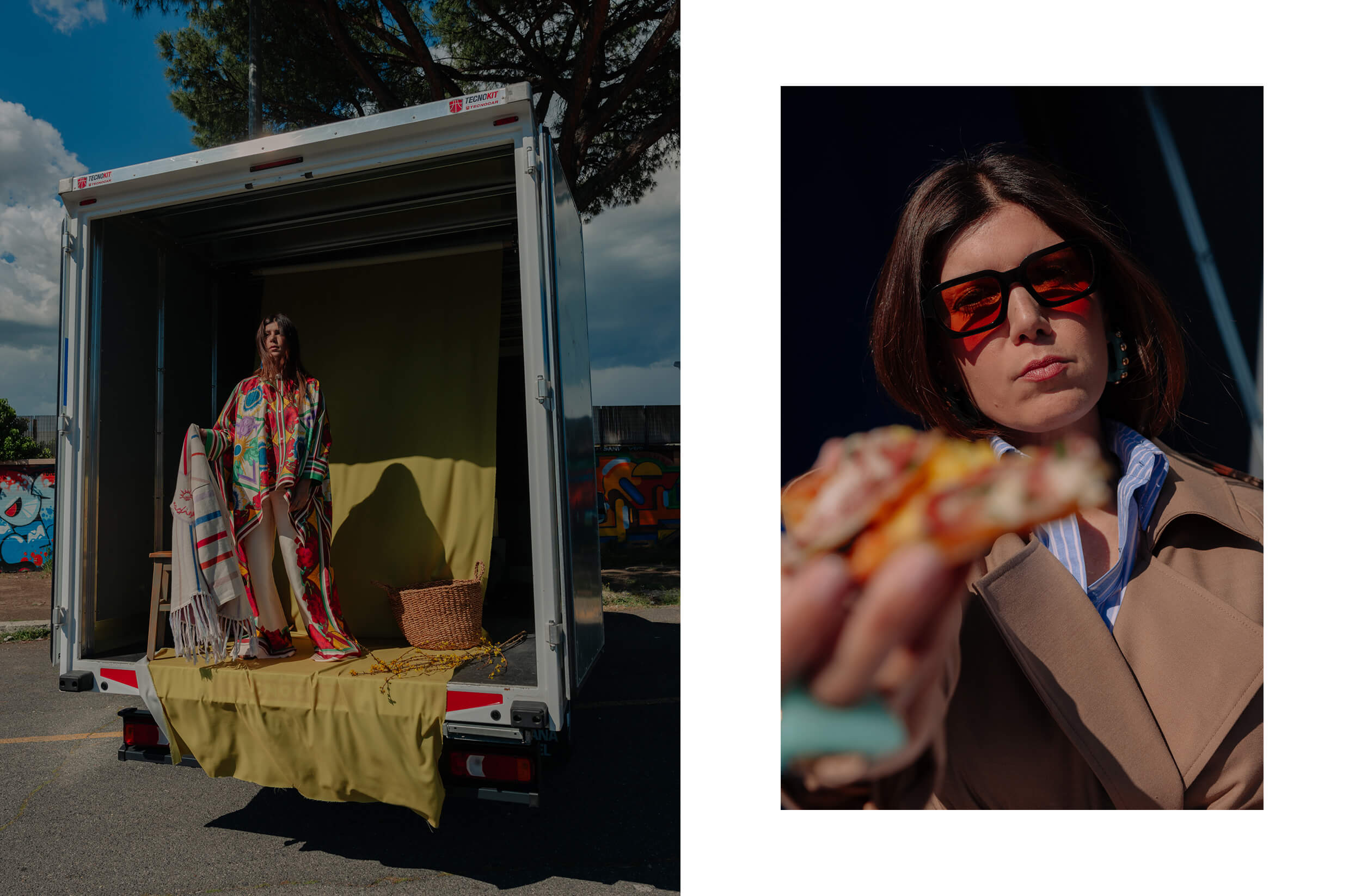If there is one person I would interview every month, it’s Daniela Collu.
Not only because her words open up unexpected avenues for reflection, not only because I enjoy talking with her (whether in front of a screen or with a glass of wine in hand), not only because I think she is one of the most influential people in Italian entertainment right now and that her influence genuinely does good, but real good. I like interviewing her because her projects are always the most interesting, so it’s impossible for me not to do it.
This time, in fact, we talked about her podcast “Sigmund” for Il Post, in which she discusses, along with professionals, psychotherapy, the effect social media has on each of us, technology, depression, the body, the future, but also a lot about the present. A true public service for those who don’t know what it means to go to therapy, for those who want to go but don’t know how it works, and for those who already go and want to be even more aware of the world around them.
Because, as Daniela herself said, with this project no one wanted to tell absolute truths, but to emphasize that we all go through a journey and that journey is human and therefore subject to misunderstandings: “but it’s alive, it’s like us“.
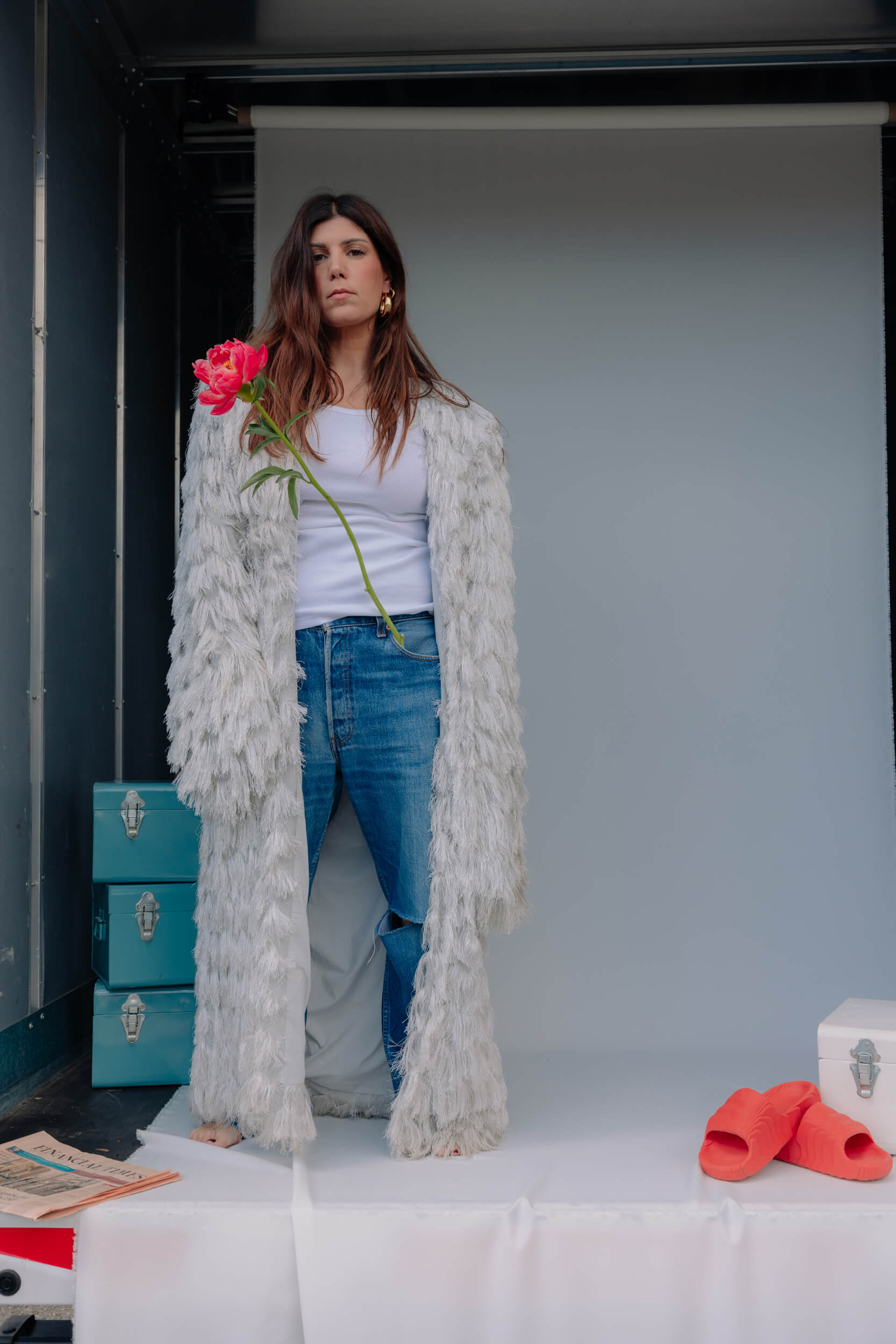
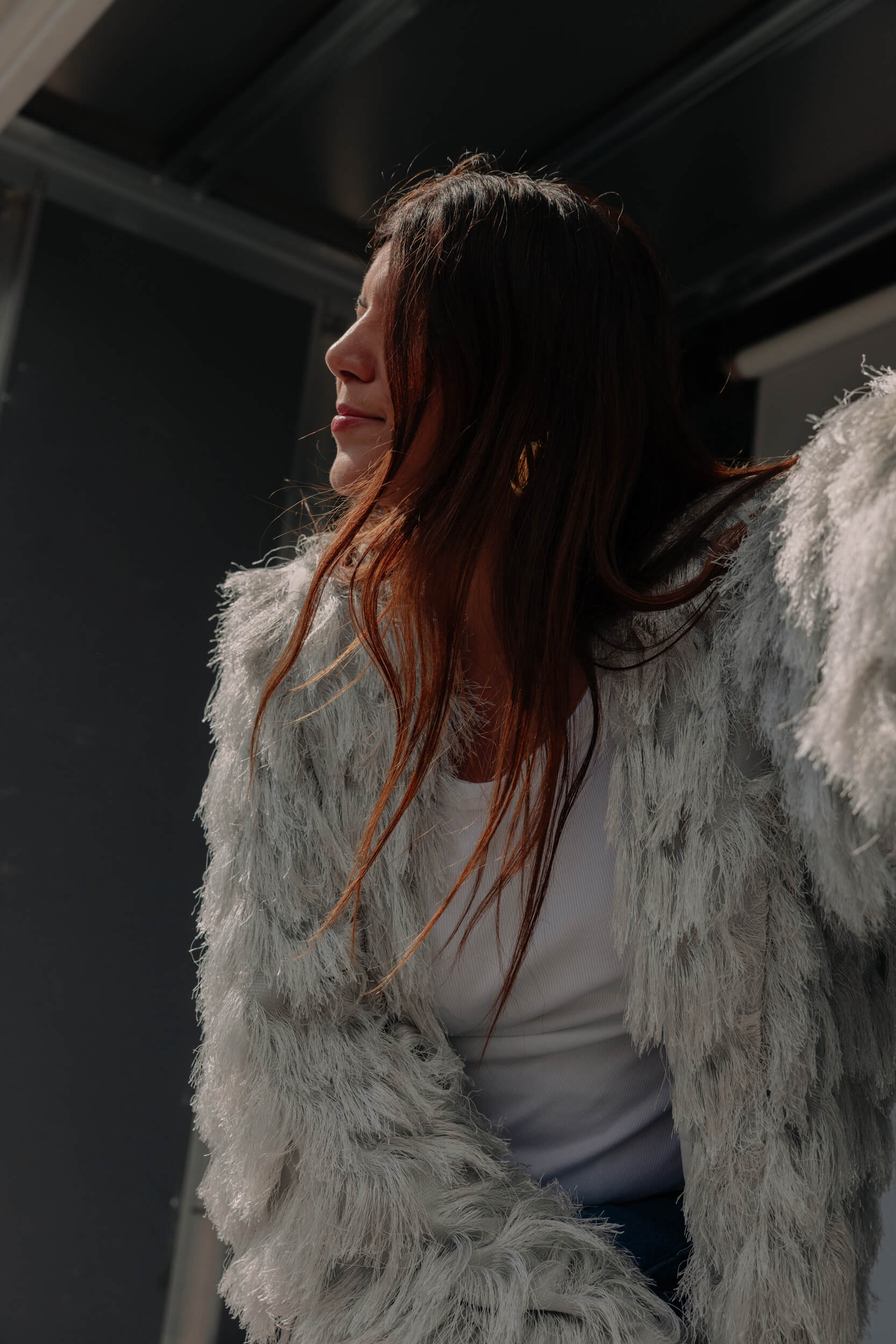
First things first, I must tell you that I am very happy because, I don’t know if you remember, a few years ago we did one of our first interviews with you where we talked about psychotherapy, and it then became a sort of format in our magazine. When I saw the “Sigmund” project you were doing with Il Post, I got excited, and I couldn’t wait to hear you talk about such important and fundamental things again. And during that interview, you told me things that I still repeat to myself often today, which are important. What is the most important thing that perhaps was told to you in this new journey, doing the podcast? That also helped you with yourself? If there is one in particular.
Look, there’s a kind of red thread that you can find, more or less manifestly, in all the episodes, and it is living through change, at every stage of life you find yourself in. We talked about depression, coming out of depression, mental disorders, and psychophysical conditions that also involve situations that perhaps do not heal and thus become, in every sense, a condition of life with which you simply have to learn to live; we talked about family therapy, we talked about growth, we did an episode on adolescents, and it seems to me that what we are increasingly less accustomed to is perceiving change, accepting change, conceiving change. So, thinking that we are evolving and that it is not necessarily an evolution that goes upwards, towards a goal, but that sometimes you can also coil up, make mistakes, find yourself at a dead end, it is still part of our inner journey that cannot be ignored.
We cannot think of moving straight towards the goal, towards the final objective without considering the step we take, the rhythm we have, the fatigue we feel, the effort we endure, who accompanies us, and what the road is like. Consequently, the most important thing about “Sigmund” for me is that everyone took the time to listen to a wise, clear word about the issues we addressed. In short, it seems to me that many of these issues have to do with the concept of change.
We are not ready to change, we are not prepared to change.
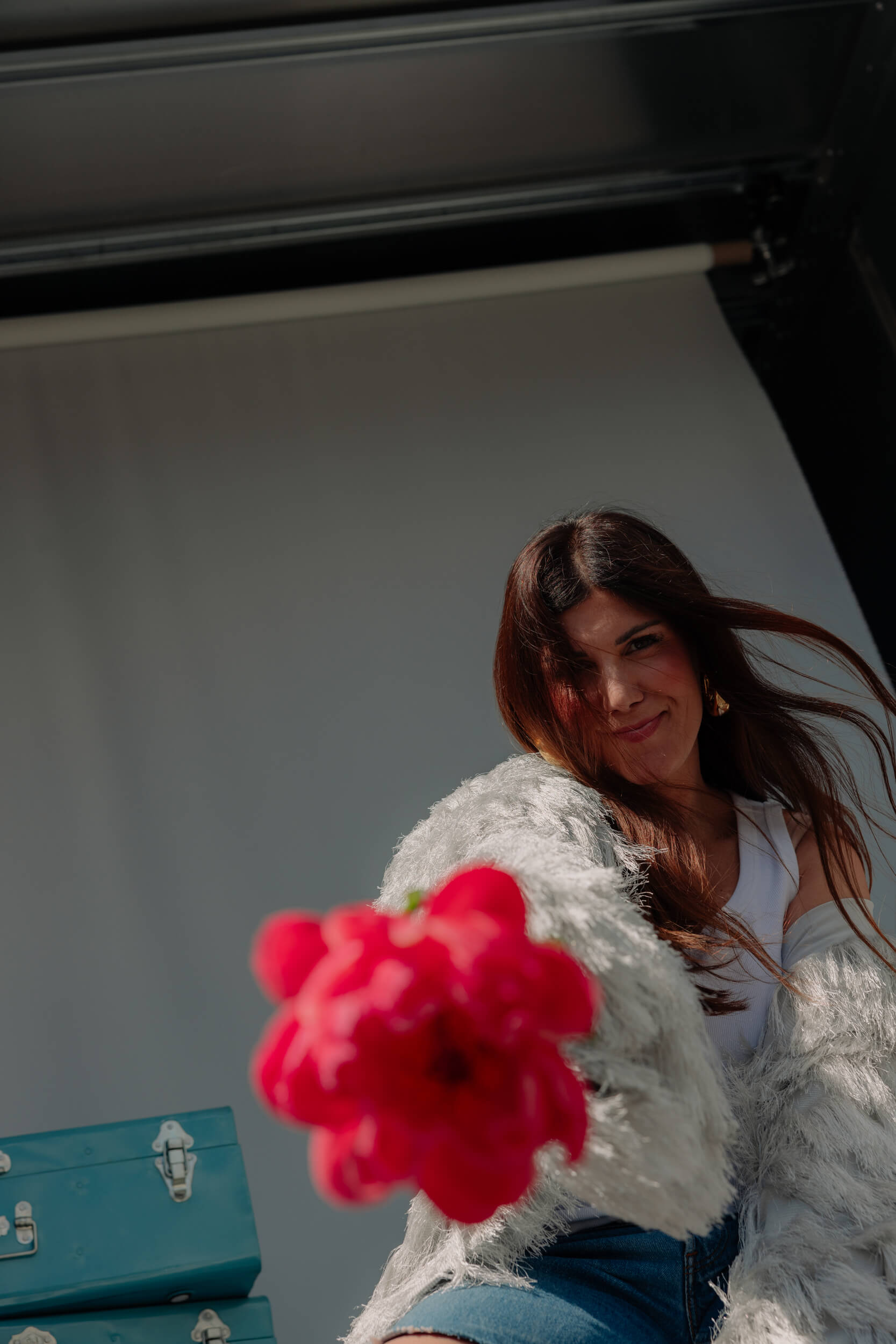
“…sometimes you can also coil up, make mistakes, find yourself at a dead end, it is still part of our inner journey that cannot be ignored.”

I also think that what you did with “Sigmund” is also a sort of “public service,” useful for understanding many things, also because the points of view of the various episodes were often different.
Many have told me this, and we have also said it at Il Post.
The first episode is a strange one, really almost “service-like”, where we clear the ground and explain what it means to deal with a psychologist, a psychotherapist, what it means to enter that universe, how you navigate in this world which is quite mysterious. Going to an analyst is not like going to a gastroenterologist, there is privacy, intimacy, a protection of what happens in therapy, which is also right, it is a journey that people must face privately, and personally. But it is true that sometimes this is also the first hurdle: you do not know exactly what you will find in front of you and therefore it is as if you are always a bit reluctant to start, and you ask yourself: “Where do I start, who do I look for, how do I do it, how do I go about it?”.
I asked to set up that first episode that way, which then was very different from the others; I wanted to say, as the first thing, that “this is how you do it, do not be afraid, it is easier than it seems.” We had someone explain to us who knows because they do it, what the doubts, mysteries, and ambiguities, the shadow areas of all this are, and then we went deeper, into each one’s interiority. That was public service because in fact today it is a topic that is talked about a lot.
Everyone says that training should be done in schools, that young people should be brought closer to the topic of mental health, but it is also true that it is a very difficult topic to address, because it has to do with everyone’s uniqueness, with the individual, with differences, with singularities.
Therefore, it is also difficult to come up with a law or rules, which is why I have always been keen to explain that in every episode of “Sigmund,” every guest, every single word of each guest of “Sigmund” does not pretend to be a law of physics because we are talking about a human science that deals with humans, which deals with people, which is constantly evolving, constantly changing.
We also wanted to emphasize the fact that there is no truth, there is no absolute, but there is a path that we all take knowing that it is a path of humanity, therefore it is subject to misunderstandings, but it is alive, it is like us.
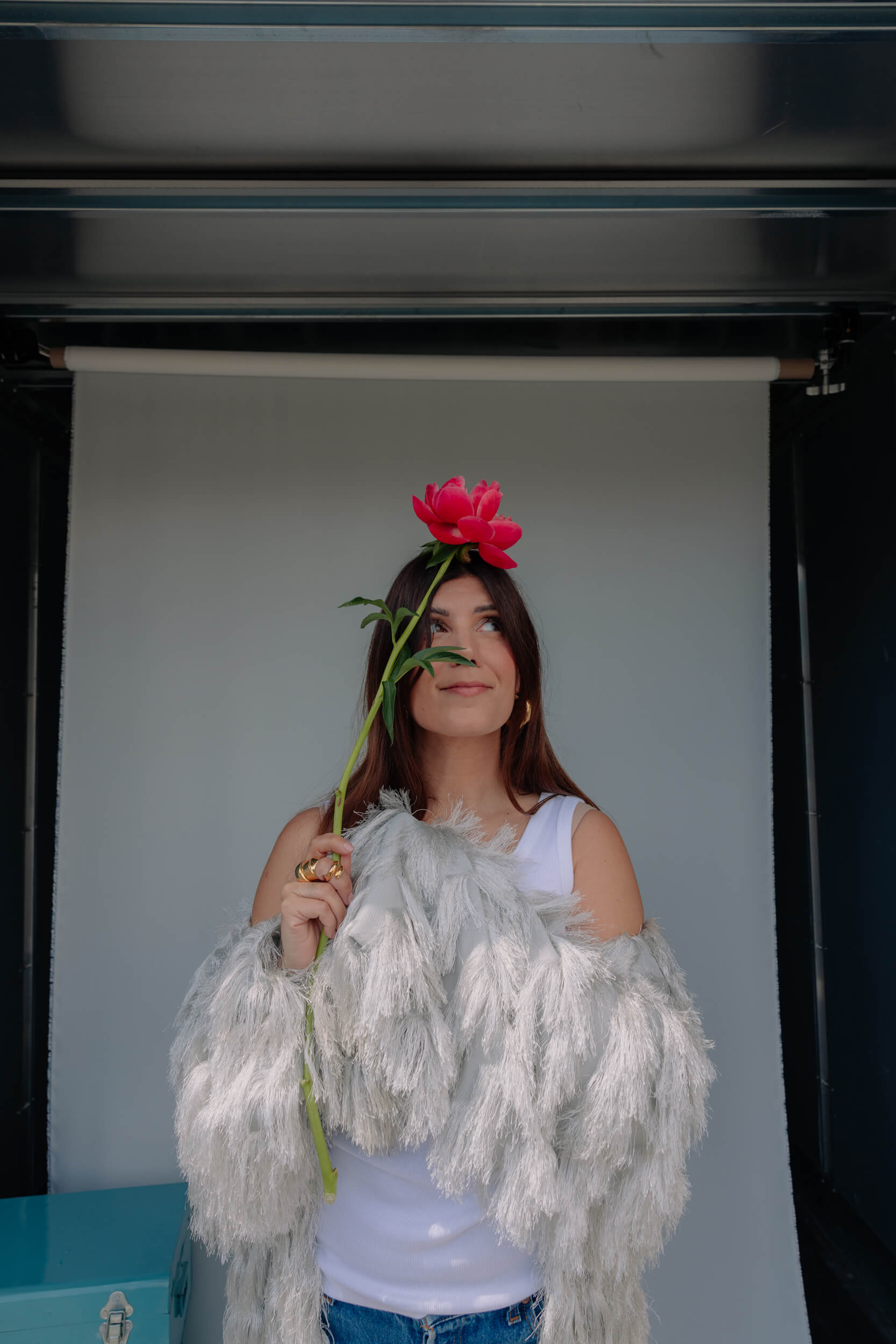
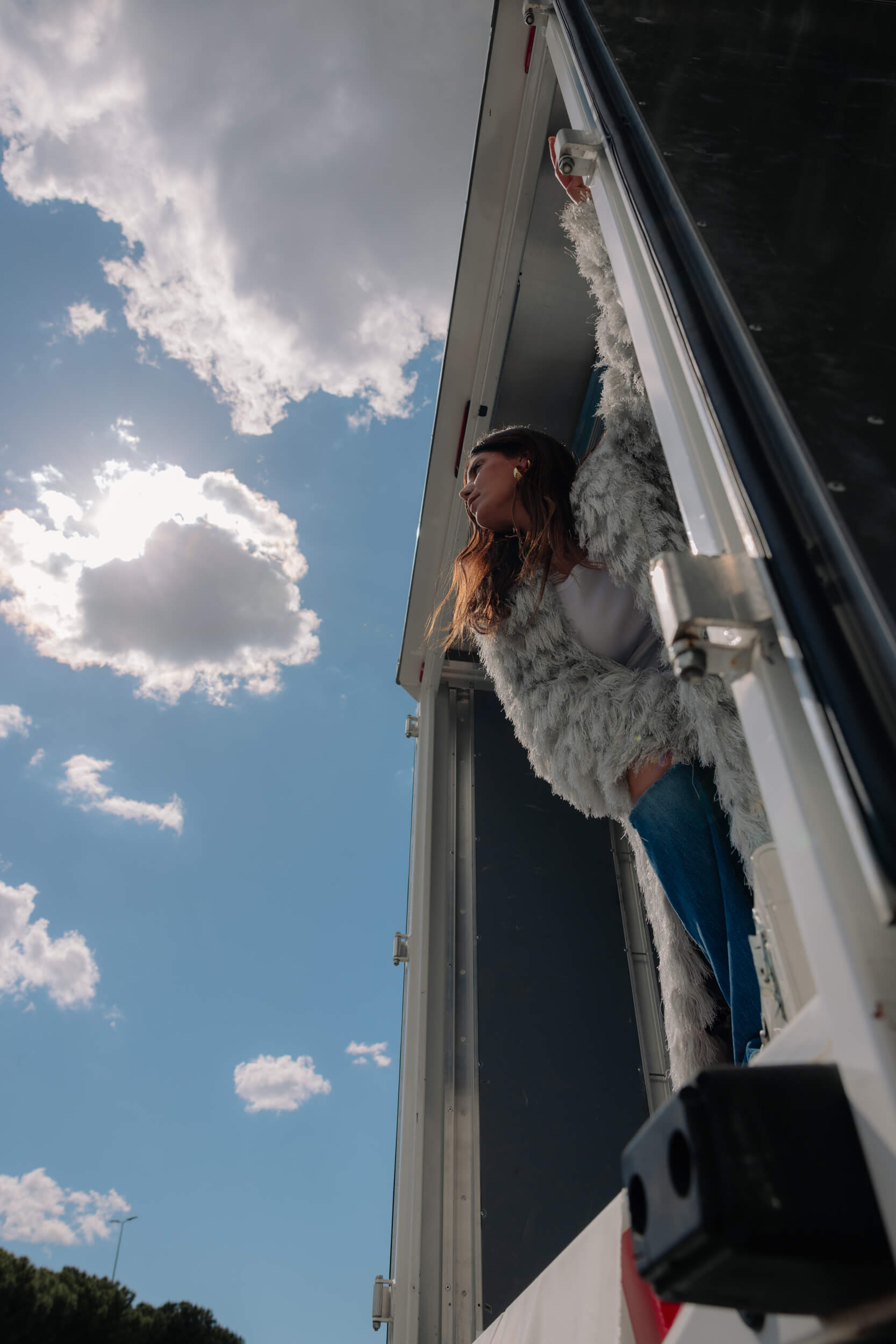
Yes, and I found it brilliant that you wanted to start like that, by explaining everything. Then, can I say that I love the song in the intro and the various breaks? It makes me think of a cathartic moment, but also of freedom, it moves me, I feel like crying, I could listen to a 15-minute song like that.
Speaking of a cathartic moment, the theme song of “Sigmund” is a track called “Gosh” by Jamie XX. For me, it is the ultimate cathartic piece because my memory linked to that music is a Primavera Sound where at six in the morning there were a million people dancing to that track and listening to it together; there I really thought we are all connected, that sometimes there are atmospheres, lines, energies that truly bind you to people. So, when we were thinking about what could be the theme song for “Sigmund”, I thought it was right to use that track. Not by chance, my friends understood. Then it is quite a haunting piece but there is a very solid energy that comes from that song.
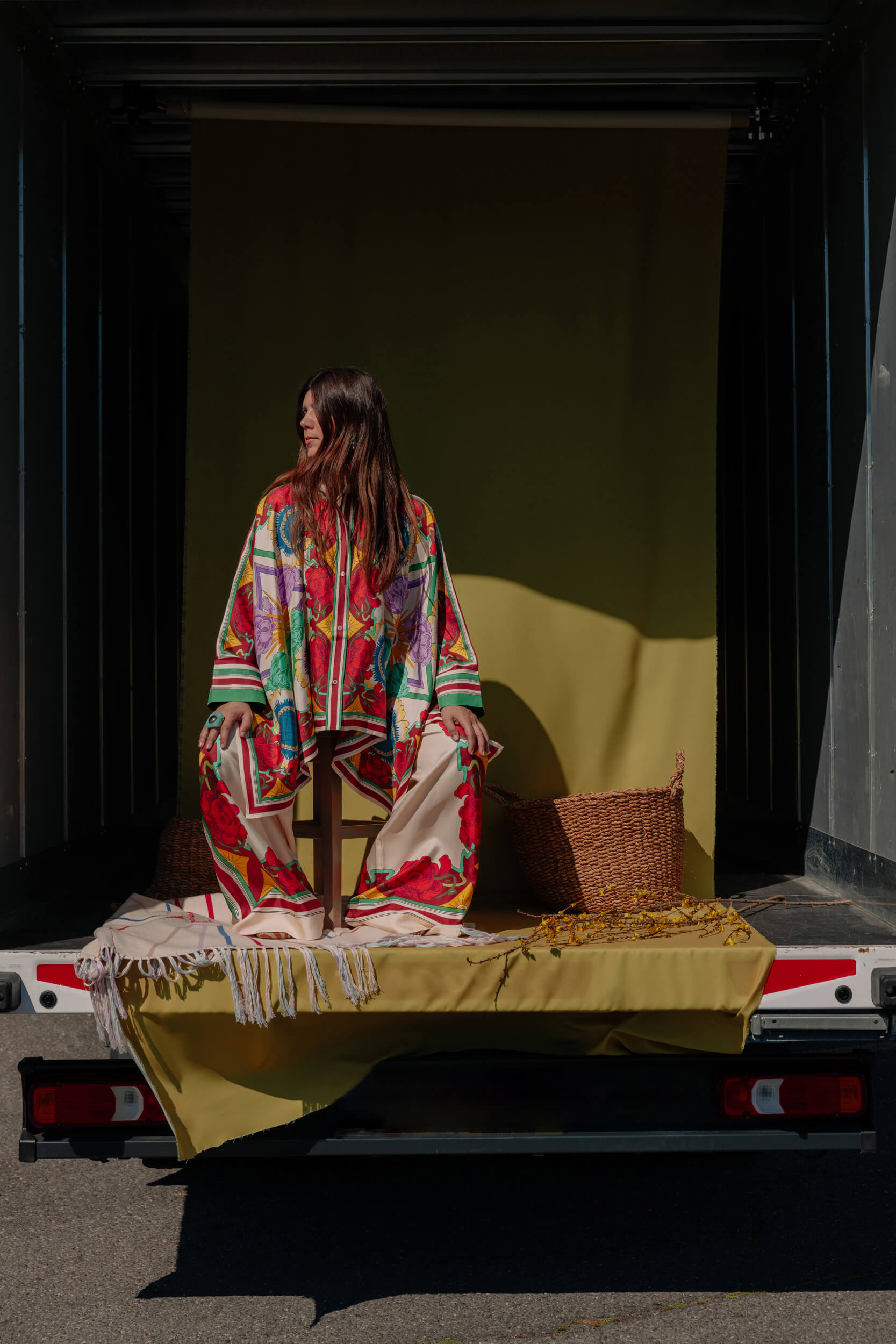

And at this moment in your life, what is music doing for you?
I realized something, which I did not expect: before I used to be so much in silence, but since being with a musician, I am a lot with people and a lot with music. The last few years have been full, brimming with music, but music is an element of aggregation: many festivals, many concerts, and many parties with close friends. I think music is a very strong binder, but on the other hand, who knows how many other times we might pass through other channels, right? Sometimes maybe it is sports, sometimes it is being outdoors, but I think that being around musicians makes you gain a lot, it makes you understand that music for them is like having an extra hand, it is another language with which you know and can communicate, and it is a huge gift. That extra hand is really precious.
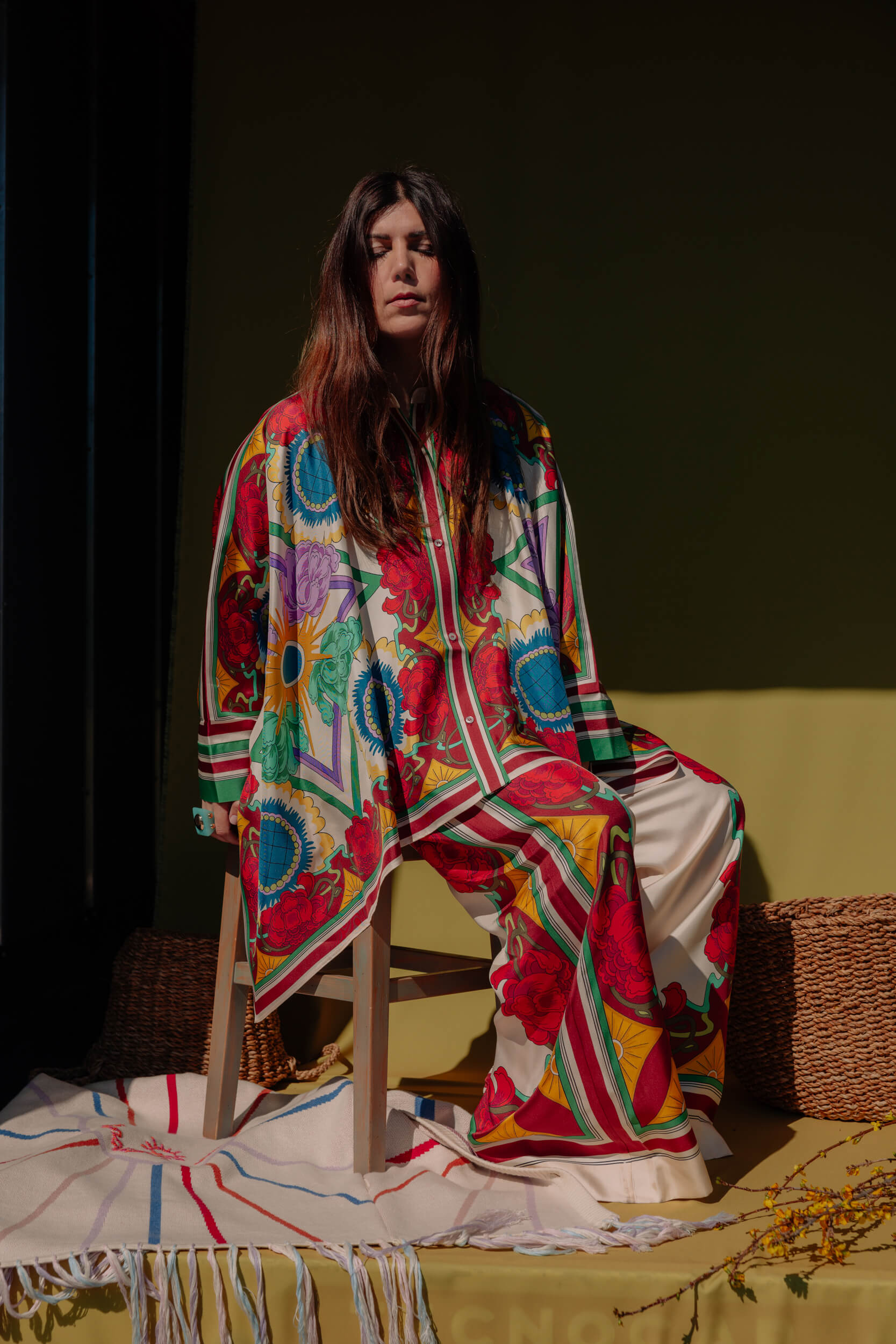
“Music for them is like having an extra hand, it is another language with which you know and can communicate, and it is a huge gift.”
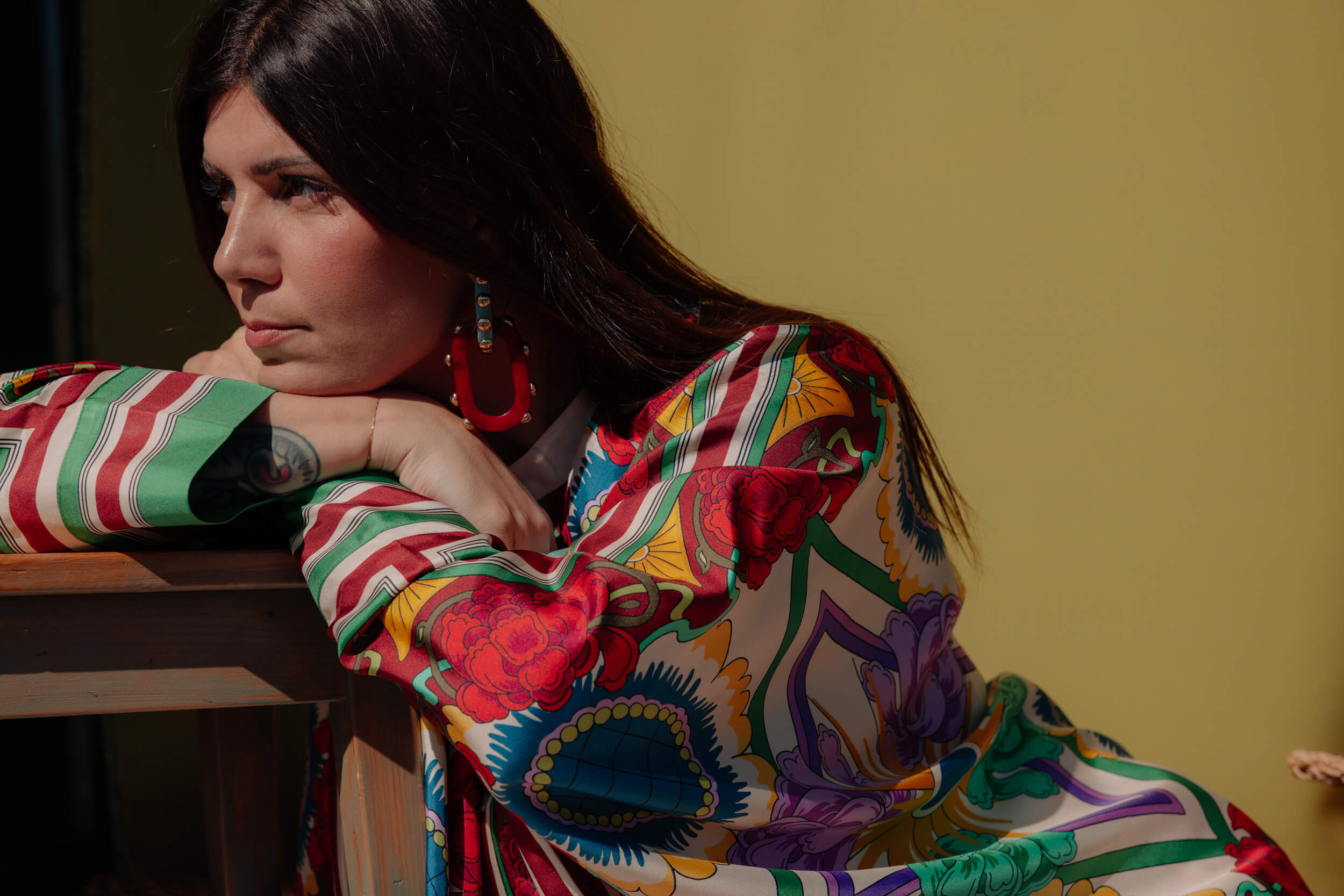
There is an episode where you say that you never did the “homework”, that your therapist never gave it to you. What “homework” would you give yourself right now, if there is one?
So, there is one that I occasionally impose on myself and never do:
I would like to be better at remembering.
I understand those who keep a diary, who do the famous “journaling”, even if it is not really my tool. But it is also true that we are all so much in the moment, partly because the moment is very crowded and partly because it seems enormously tiring, mentally speaking, to think about the future. At the same time, we have been told not to ever think about the past again, that we must never look back, never go back even to take a run-up, and consequently it is as if we can only choose between the present and future. No one is really able to enjoy the present, and as for the future, as they say in Rome, “Blessed are they who have an eye for it”.
It is as if I can no longer manage time well.
So, occasionally putting things down in black and white is useful to me: remembering what we did, what we thought, where we started, what was something I desired a year ago and then actually achieved, and I do not even remember that I desired it. You know when you walk in the mountains, for example, it is nice to turn around and say, “Look, we started from down there, look how small the house is now”. I would like to be able to do that, to collect more, to take stock more often. I am not good at it.
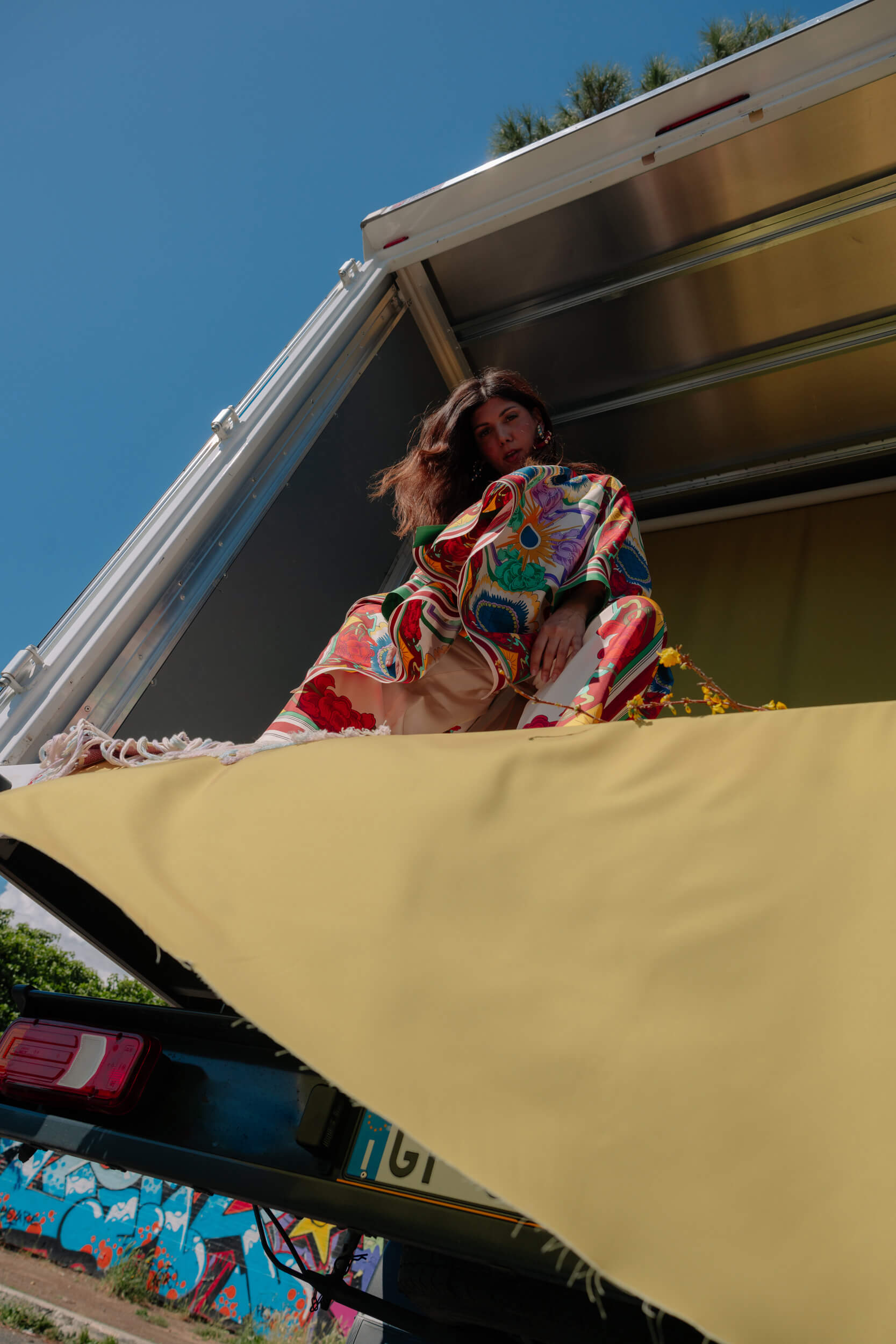

No, me neither. No one is, I fear, but it would be nice. It would be like a superpower.
In the first episode, you also talk about embarrassment, how it can hinder the journey, sometimes in just having difficulty saying what you think. How many times have you felt embarrassed? Has it ever prevented you from doing something in life?
Even I, who talks like a machine, have found myself silent in a particular condition, that is, during the lockdown. During the lockdown, I was depressed and very sad, I had become unaccustomed to talking. I stayed there thinking, “I don’t want to talk, there’s nothing to say”. It was as if I was a bit alienated from confrontation, from chatting, from storytelling, it was as if we were living this kind of Groundhog Day and there wasn’t much to tell.
Moreover, the things I had to say were probably things at that moment too painful, too tiring even to focus on and so I convinced myself that there was nothing to say. I remember my psychotherapist looking at me almost judgmentally, her eyes saying to me: “Yes, yes, sure, you have nothing to say, of course, you would like that…”.
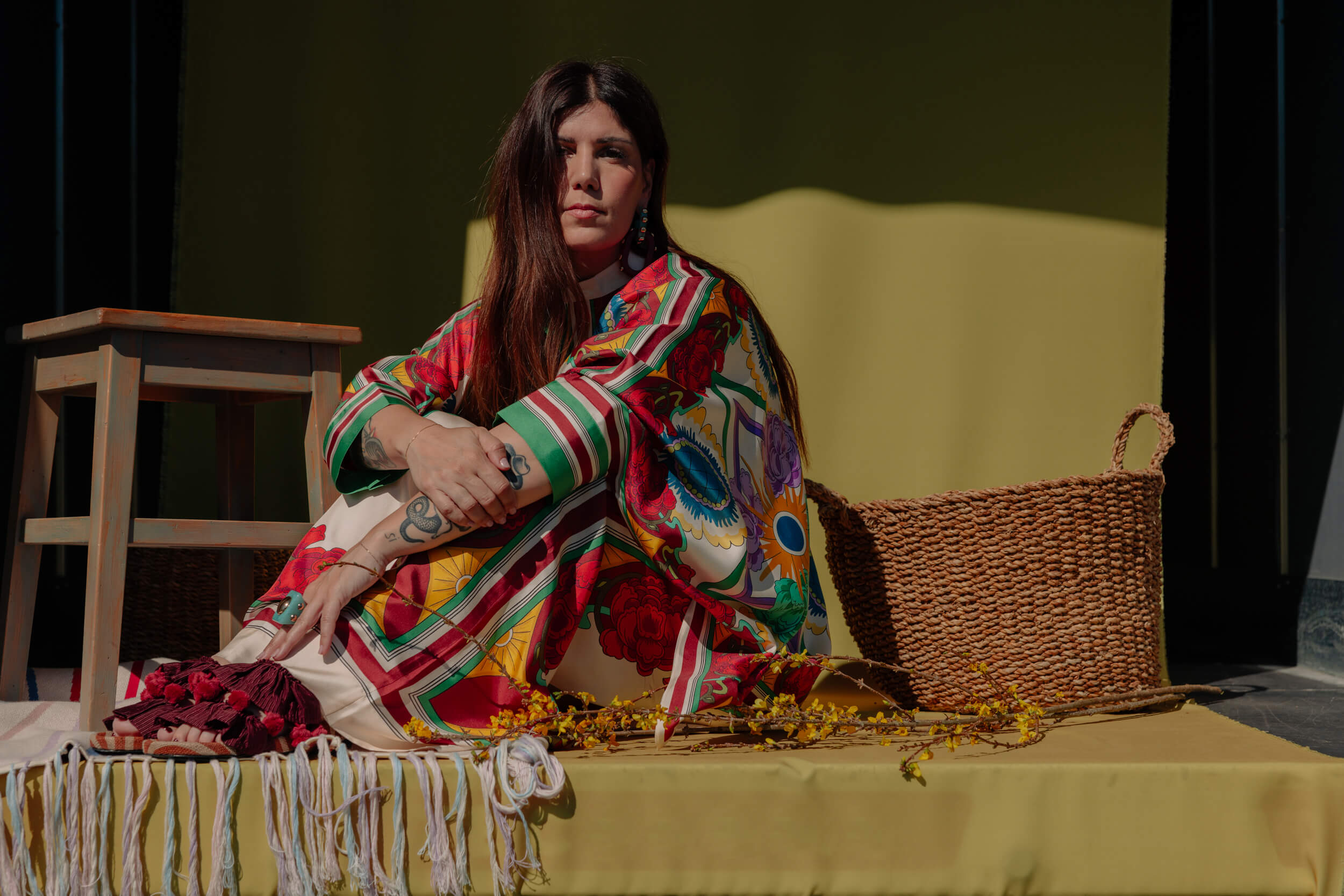
You said in an episode: “It’s not necessary to hold on to your thoughts, you can move on and have others”… Has it ever seemed impossible to you? It certainly has to me, I get obsessed.
Of course, my friend Orange once told me a phrase that was said to him, and he repeated it to me with the same calmness with which it was told to him, that is: “It’s nothing, it’s just emotions, they will pass”. For me, it was as if the sky had opened up, you know? Then I talked about it with my psychologist, and I remember she told me, “That’s exactly right”.
We should learn to give positive emotions the same importance we give to negative emotions: if you think about it, we spend weeks around a negative emotion, but it’s very easy to forget that you were happy for six hours, right? You had a great time one day, but the next day that emotion is swallowed up by stress, sadness, and everything else. So, it’s also an invitation to reflect on the specific weight we give to our emotions, on how much more frightening and therefore “vampiric” the negative side of what we experience is, how much fear sucks more than happiness, on clinging to thought and never being able to let go.
Many times in my life, I have thought, “I will always feel bad”, but then I also thought it was a thought I never wanted to have, and I wanted to stop it, I tried to stop it. I was lucky, I managed to do it.
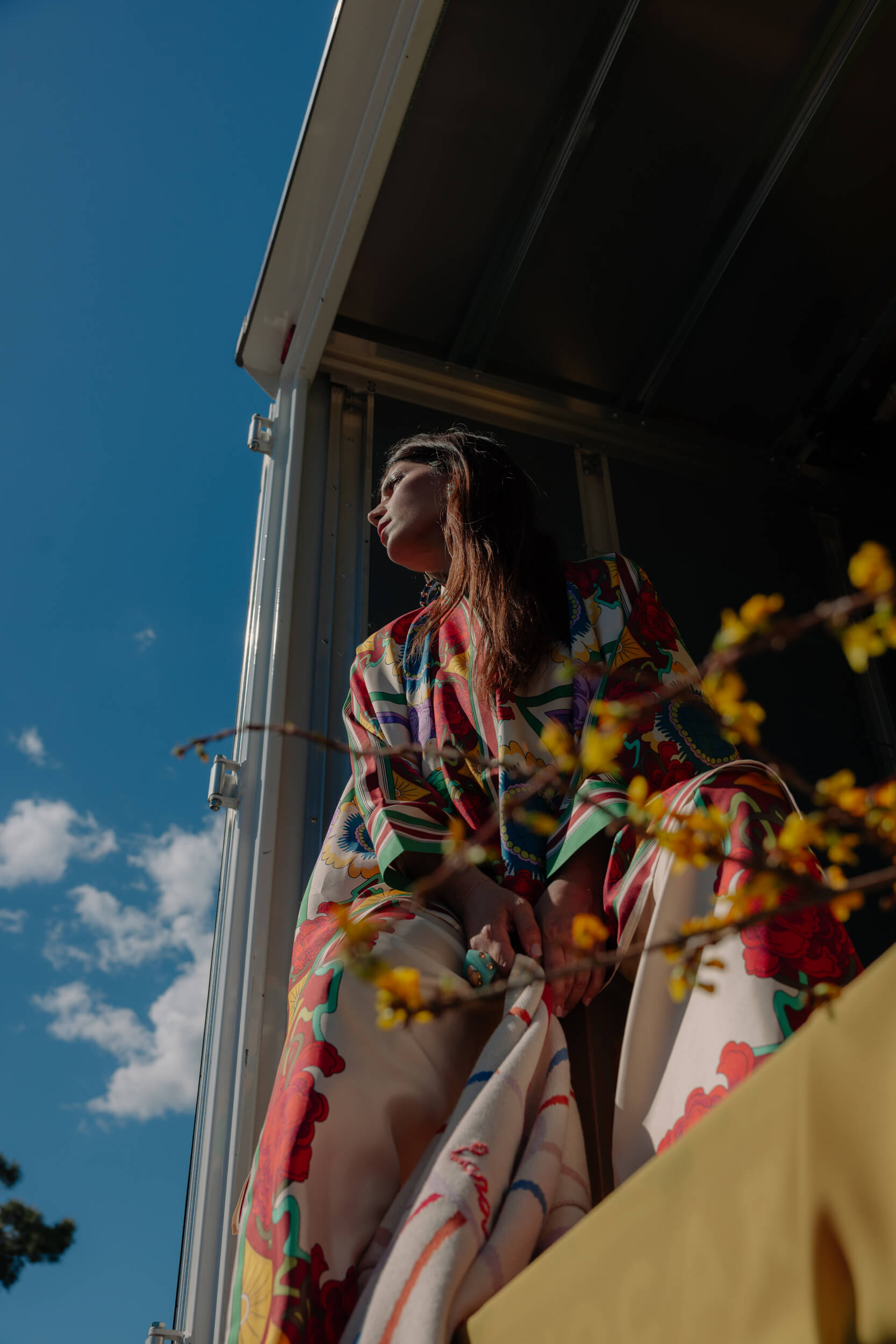
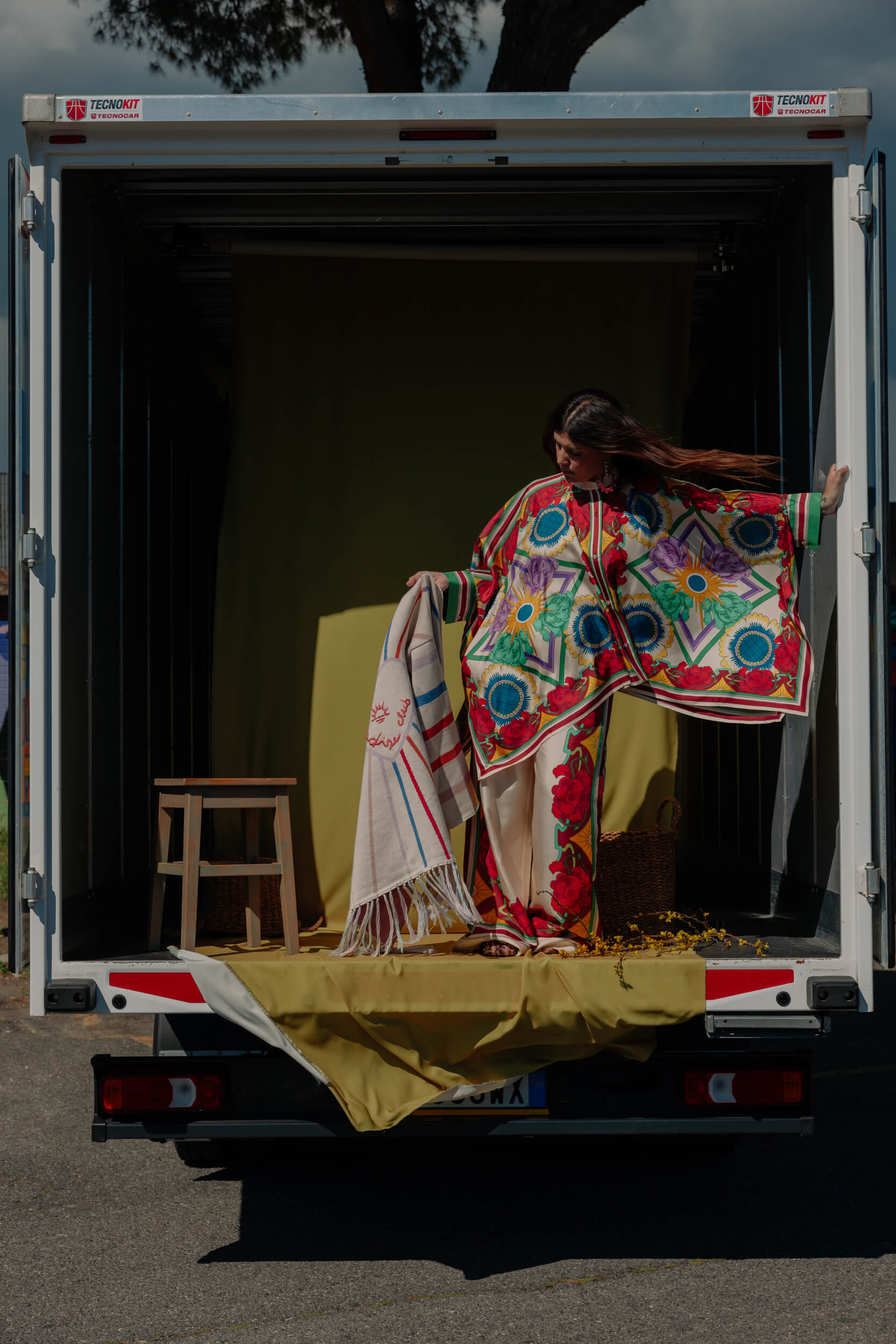
“We should learn to give positive emotions the same importance we give to negative emotions”
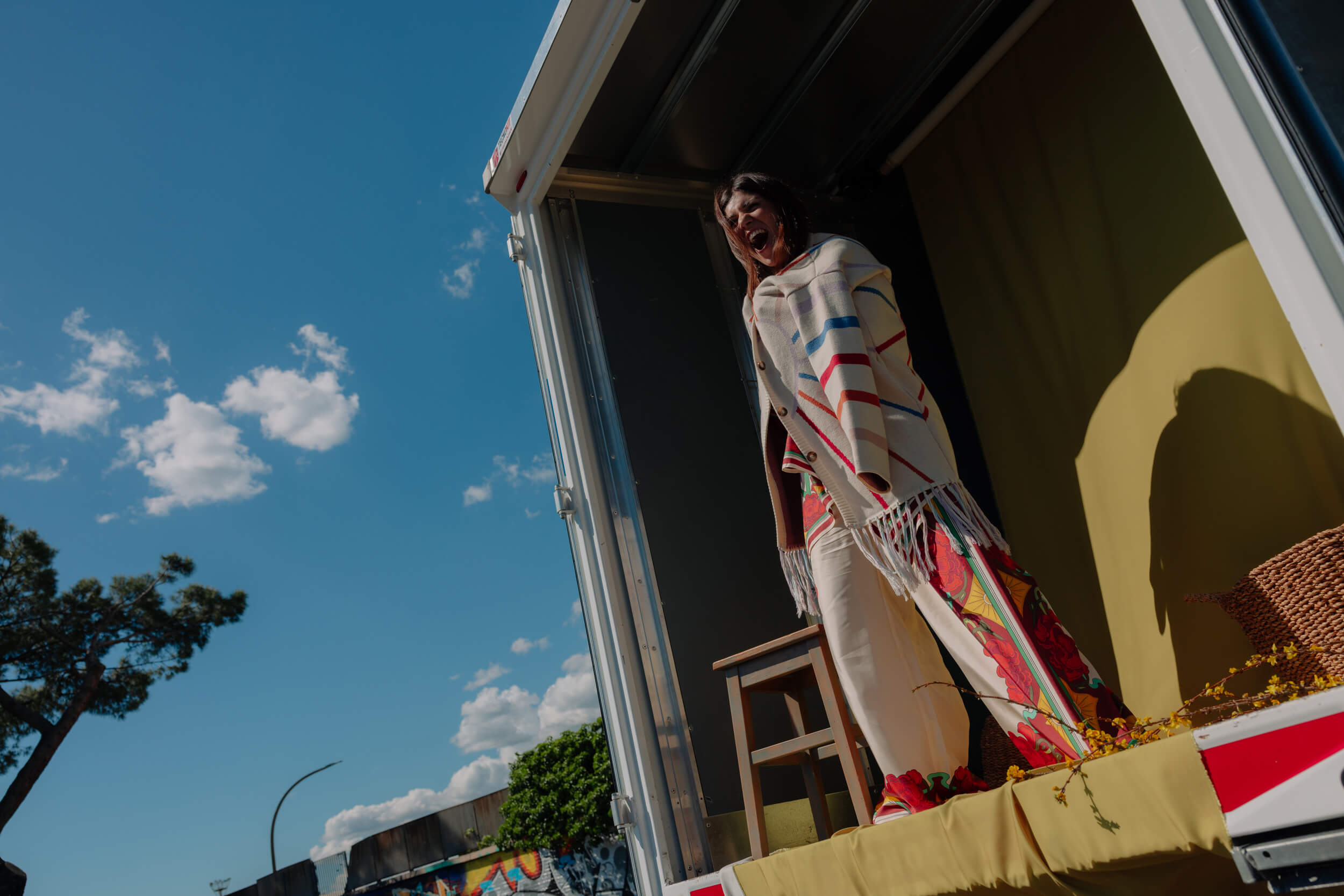
I also really liked the part where psychiatrist Giovanni Foresti talks about intelligence and says it is the most overrated among brain functions. “It is idolized. It is assumed that a high IQ is capable of things unknown to others, like a demigod”. Maybe emotional intelligence is more important?
Actually, it’s something that, when I was younger, I never thought about. I never thought that my way of being could be appreciated in a certain way: for example, I am a very empathetic person, but in school, I was a failure. But I had to do well in school because ours is a system that teaches you to do well in school, not to be empathetic. Yet now I realize that it’s as if I had bet on the wrong horse all my life.
“Be a winner”, they told us, and then we ended up with generations of winning drug addicts, depressed, unhappy, lonely, scared, scary people, and then the question arises spontaneously: “Are we sure?” We decided that this is the end goal, but I don’t know if it’s going so well for us.
I think the discovery today is realizing that there is a creative intelligence that I have absolutely not cultivated over the years.
Today, if you deal with kids with ADHD, with kids on the autism spectrum, that is considered a form of intelligence. Our generation, however, focused on the intelligence of academic achievement in a school system that did not consider all these aspects of personality at all.

In one episode, it’s also discussed how important food is for us, even as a social act, how much this affects us, our bodies, sometimes even too much. Are you able to free yourself from this emotion or sensation, from the importance of this aspect?
It’s difficult to free oneself from this feeling. We are obsessed with food, the effect of food on our bodies, and the effect of the body on sociality, which is a kind of horrendous chain we have created over the years. We attach so many things to food, and it is true that Italians eat while talking about food and that the whole gastronomic affair is culture, history, and heritage for us, but it is also true that I do not know any woman over 65 kilos who felt completely at ease eating a sandwich on the beach in a bikini. Rather, let’s put it this way, I do not know any woman who has a healthy relationship with food. This has to do with models, with the fact that for years we have told ourselves that women only eat a little salad, that they are not really hungry, that they can skip dessert and all those things because the way the body resists food is more important than the way the body enjoys food.
So, unfortunately, what you say is not so much a feeling or an emotion, rather I believe it is the effect of a social conditioning that women in particular have experienced. Unfortunately, today it is a stereotype that has spread a lot to men as well, but fortunately, the whole battle that is being carried out against fatphobia, stigma, and everything else weakens it a bit.

“We are obsessed with food, the effect of food on our bodies, and the effect of the body on sociality”
There is a nice phrase that is said on this subject, namely, “Human desire feeds, besides food, on the desire of the other.” What do you feed on?
I feed on the other in terms of curiosity, desire for relationship, closeness, words, and exchange. I am very good on my own, in the sense that I am a person who is quite used to being physically alone, but I also like being with people, I like human beings a lot. Last night we celebrated the opening of VARSI in Trastevere, and there were 500 people around me dancing, and at that moment I thought that was my ideal condition.
I want to participate in other people’s things: I need human beings.
I have also learned to absorb the best and worst of human beings, and I am not always good at resisting the effects, but to answer your question, I believe I feed on exchange, on being with people.
There is often talk of “protecting and taking care of oneself”. What do you feel protected from right now?
I feel a little more protected than before from external attacks, and by “external” I mean “far from me” but, because of the job I do, have a privileged channel to reach my skin.
If you think about it, being online today means having a knife between your teeth, parrying blows, having a lot of desire to strike back, arguing, judging, being judged, being attacked. Now I feel a bit more protected from all that.
Of course, I still have to work on it, in the sense that I still have to refine the last details, but I have definitely learned to protect myself better.
Today, nothing that is really important to me is online, and nothing that is really unimportant to me is online; this means that I have willingly given up the gratuitous comment, the out-of-place bullshit, the spontaneous tweet that we know “comes out wrong.” I have started to clean up and therefore feel more protected because I have drastically reduced the chances of vulnerability and devaluation of the things I experience. I no longer want my things to be online because it is unfortunately very difficult to maneuver things with care, attention, and giving the right value to what the other exchanges with you.
They can’t fool me anymore.

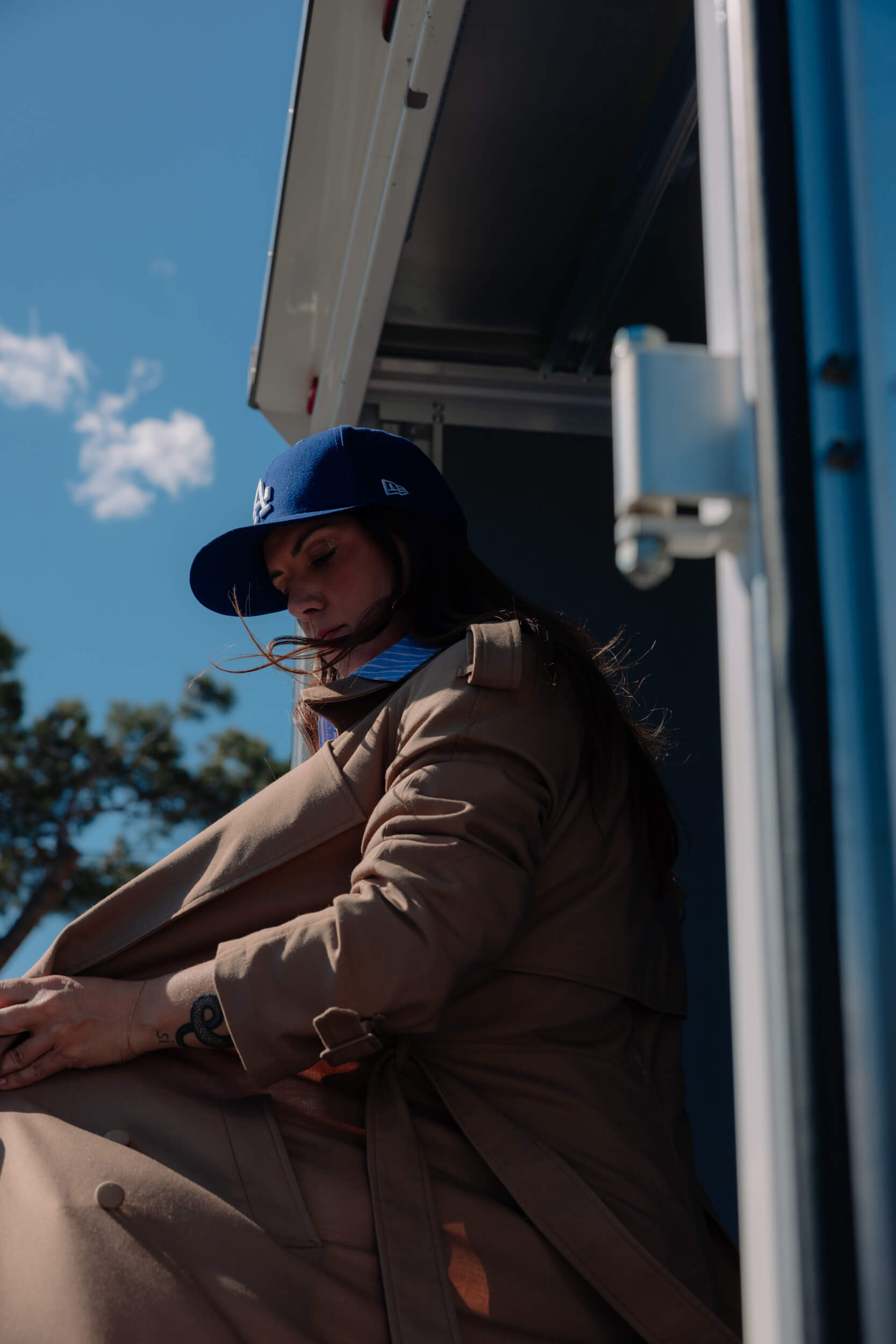
Well done!
Then there’s the episode on narcissism. Narcissism confronts a near-total lack of empathy. This is something that scares me a lot when I think about it. Sometimes I think I have too much of it, of being on the other side, but not to brag, I actually don’t think it’s healthy. At the same time, I believe that if everyone had empathy the world would be saved or almost. In a way, it’s as if narcissists have the world in their hands, considering also their way of always seeing themselves as “grandiose” and unable to conceive of failure. What is your relationship with failure?
I take it into account even before success [laughs]. For me, it starts from failure. Among other things, it’s funny because if you’re not a narcissist, you have impostor syndrome, but often those who say they have impostor syndrome are actually narcissists, so it’s all very complicated.
In short, for me things “go wrong”: for any project, I start by saying, “Well, no one will like it, no one will read it, no one will listen to it, it will go wrong.” Actually, this helps me to think that if I’m going to fail, at least I’ll do something that I like, and at least I’ll be happy to do it. Then obviously I am aware that there are many people curious about my work, attached to me or what I have done, to my face, to my voice, and I know there is feedback, a response from them, but I take into account that things can also go wrong, they can turn out badly.
By now for me, failure is no longer a specter, you know?
It is no longer a ghost, a Satan. Also because anyone who has worked in the environment where I have worked, so television, is surrounded by people who really experience failure very badly.
There is also talk of closed places, that lock you in. Have you ever felt locked in?
I know I did myself a favor by multiplying the rooms I could lock myself in. I have always done many things, I have always been many things, I have changed direction many times, so that “feeling locked in” is not something I feel much. But I understand that it is a tendency, also because in my opinion, in this country, social media have a label. I think sometimes they lock you in a content or a series of content you do with others. They lock you in or you lock yourself in, because inevitably when you see that a certain content gets likes, people like it and you have that return, that feedback so pleasant, you think: “They love me, they like me, I can do this and I will do it again.” But maybe then you don’t like that thing you did once anymore, and you realize it is not particularly fitting to you; so, every now and then you have to do things that are not fitting to you to break a pattern. This also has to do with change: we need to learn to ask ourselves, “I know others want this from me, but do I want it from myself?”.

“I know others want this from me, but do I want it from myself?”
In the episode where we talk about social media, it is mentioned that we are no longer capable of waiting: when was the last time you felt capable of waiting?
Good question: I’m afraid I don’t have the answer. I’m not very good at waiting, I don’t have much patience, I don’t like waiting, I deceive myself, I put other things in between.
This ties back a bit to the discussion about the time I was having with you earlier. It is true that we are very good at being “here and now”, which now seems to be the categorical imperative: to be in the present, to live in the present. It is difficult to wait because it is really difficult to give oneself a realization time for things; we have a frustration with series now. For example, I feel very frustrated in waiting and it is no coincidence that I fill it with things to do and other things to do. More than waiting, I would like to be able to slow down, stretch these times a bit, and know that I am a bit more comfortable within them.
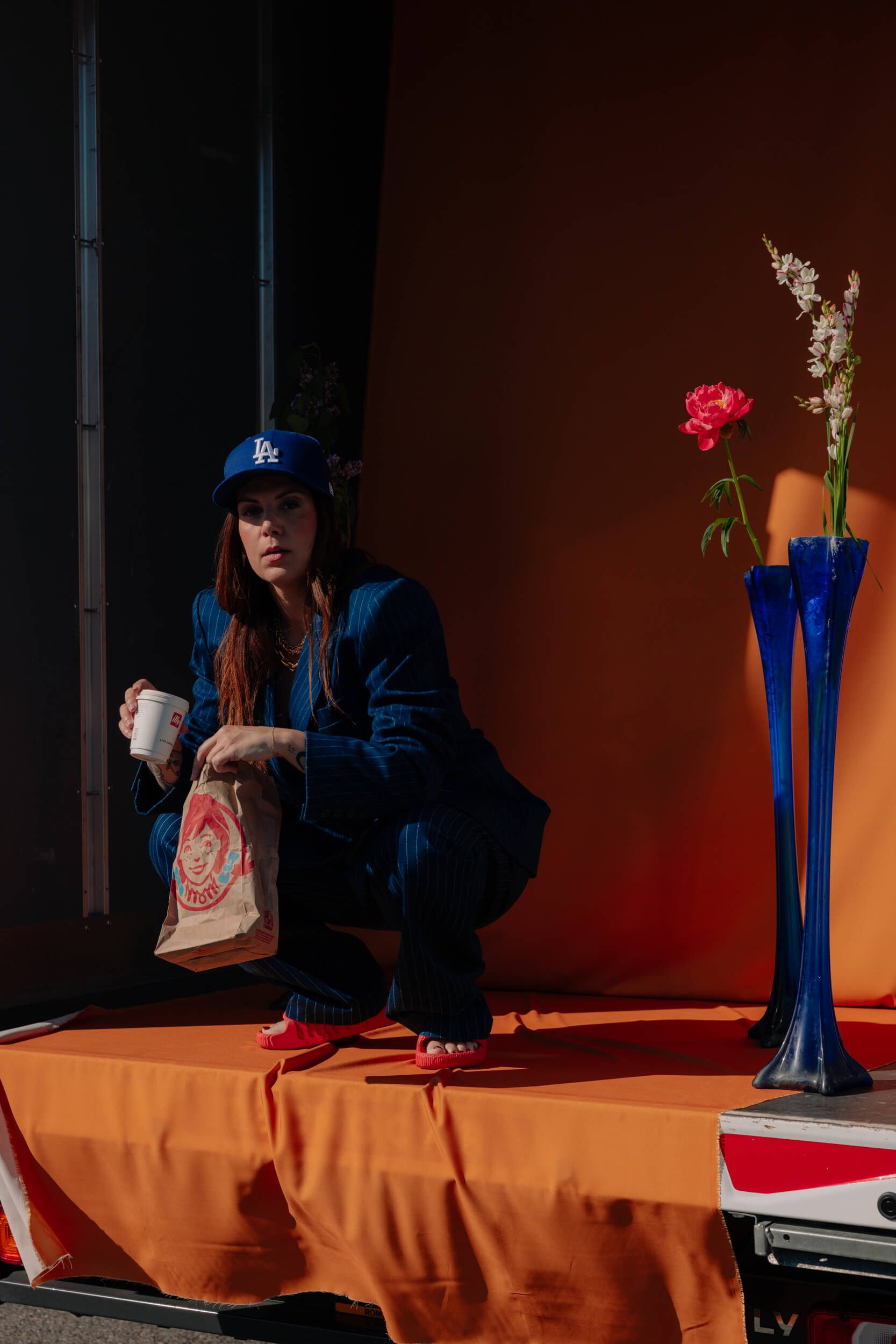
Also in the episode dedicated to social media, it is said: “Technology works on emotions but cannot turn them into feelings”. For you, is this completely true?
Quite. Let’s say that in my opinion, they can turn into feelings, but I have learned to think that those feelings are not given by technology, but by the human construction we put into it.
I work on emotions, but it is also true that we are much more used to emotions than feelings, that is, to this kind of emotional geyser of things that come to us and so we get indignant, we get angry, we despair for Gaza, we fall in love with someone, we poison ourselves over politics, but then that thing becomes a feeling. Becoming a feeling requires elaboration and I don’t know if we always have the time and energy, resources, the attention to re-elaborate the things we have experienced emotionally.
I quite agree with that phrase, especially because I remember that in the podcast that phrase tells the context of the “poverty” that remains at the end of so much use of technology, which is not based on truly formed humanity, on truly solid personalities; so it is as if we emotionally charge ourselves, as if the belly is always in motion, but then the head, the reasoning, the thought, the soul, the re-elaboration of those things, in my opinion, remain very poor. I think it takes a lot of extra technological work, and I realized that you can do that work with anything else: with what you see on the street, with what you read, with what people tell you, with the things you dream, with the things you imagine…
If we have all those tools, then why are we holding this damn phone in our hands for 18 hours a day?

We also talked about social networks in relation to anger. How do you feel now about social media and anger?
I still feel very guilty and very ashamed of the anger I expressed. It didn’t happen often, but if I think back to the times it happened, I feel tenderness and almost pity for myself looking back. I wonder what I thought I was pouring onto a complete stranger, what form of frustration or annihilation I thought I wanted to give to that stranger. I felt sorry for myself, as well as for them. That form of carelessness, of not controlling emotions, scared me a lot, especially because then I saw it in others: if seeing it in myself terrified and almost disgusted me, now when I happen to witness this thing as a spectator, I can only ask myself, “Can we all manage not to reach that point, to understand earlier that in real life emotions can be managed?”.
Social media communication is inherently distorted: you communicate with people you don’t know, you don’t have in front of you, you don’t know the tone of what is being said, you don’t know the background. At a dinner party, you don’t argue with the person at the next table; on social media, it works differently, there you send people to hell without thinking too much, or at least that happened to me. So I seemed very small in managing anger, I felt a bit defenseless as if I had been left with a gun in my hand on the worst day of my life when it was clear that you would then shoot. But I don’t want to be someone who shoots because they had the worst day of their life, I’m not that person. I think we should take a few steps back and recalibrate the boundaries of what we consider important.

“I think we should take a few steps back and recalibrate the boundaries of what we consider important.”

Technological addictions: have you ever wondered if you had one? I often thought I had one with online shopping, whether it happens or not, but the constant “looking for something.” And even here, if I decide not to buy, as most of the time, otherwise I wouldn’t have the money to eat, I get angry because I widen the gap between what Valentina wants to be with that dress or that object and what Valentina really is.
I understand. Unfortunately, the projection mechanism in our head means that all the women you see on Instagram, for example, can be a Valentina with that thing, with that vacation, with that house, with that dress, with that body, with that boyfriend… That is the problem: if you think about it, we project ourselves into others all day long; the projection mechanism in the brain is the most basic that exists in the relationship with others.
If you think about how many “us” we have multiplied in others, it is the least that you are angry, because you are not all those things and you don’t have all those things.
They tell you that you are envious, obviously, and it’s true, we are, we want others to see us with the same admiration with which we look at them, and if to achieve this it is enough to buy a bag, then what does it take? We buy everything, and here we are, poor [laughs].
When Dr. D’Avenia explains that social media platforms are structured like gambling, or slot machines, or all those things that lead to gambling addiction, it’s true, he’s right. I can spend an hour on TikTok and when I close it I want a thousand different things, and I ask myself: “Is it possible that in an hour I will have all these desires?”. It is a bit strange, especially considering that so far, I have lived well even without all those things. They have messed with our heads and I feel like saying it’s not our fault, but unfortunately, we have to work on it.
I imagine and hope there will be other seasons and episodes of “Sigmund”, but if you could make another episode now, what would it be about?
Maybe I would make it about romantic relationships, which are a whole world made of archetypes, the desire to be seen, fake generosity, and fake push that is all a desire for reception, it is all made of models.
I would go back to my first true love, that is, love talks.
A question I ask you in all our interviews: what book do you recommend?
There is a book I want to recommend to everyone called “Stories of My Life” by Janek Gorczyca, published by Sellerio. It is an extraordinary book I read four days ago. I will take it in my suitcase to have it read by those who will come on vacation with me.

Photos & Video by Johnny Carrano.
Makeup and Hair by Elisabetta Distante.
Styling by Sara Castelli Gattinara.
Assistant stylist Ginevra Cipolloni.
Thanks to Other srl.
LOOK 1
Coat: Rotate
Shoes: Suede Store Roma
Jewelry: Argentoblu
LOOK 2
Total look: LADOUBLEJ
Jewelry: LadoubleJ
Cardigan: Gio Gerosa
LOOK 3
Trench: Federica Tosi
Shorts and shirt: Sandro Paris
Shoes: Suede Store Roma – Adidas Gazzelle
Jewelry: LadoubleJ
LOOK 4
Total Look: The Frankie Shop
Jewelry: Argentoblu
Shoes and hat: Suede Store Roma

